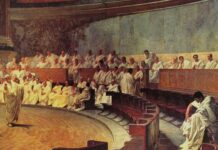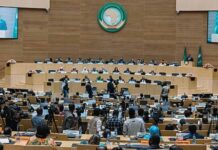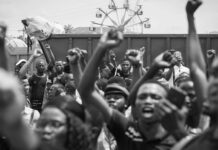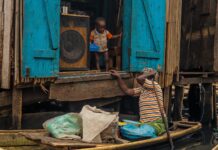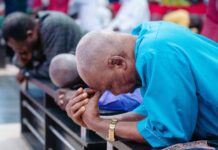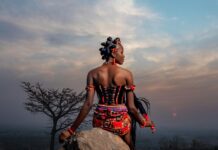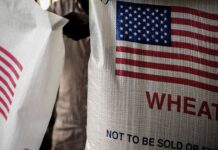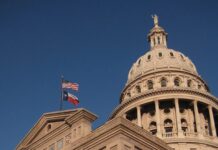
Last year, 2024, much was made about the fact that elections were held in so many places around. Elections had been held in more than 60 countries. One of the main themes of the year of elections was that incumbent parties had struggled to maintain power in many countries. Or at least in many countries that hold truly democratic elections. That trend would play out in perhaps the biggest election to take place in 2024, in the US, where we saw the Republican Party defeat the Democrats, winning the Presidency, the House and the Senate.
Likewise, in the United Kingdom, the Conservative Party would lose to Keir Starmer’s Labour after 14 years in charge in Westminster. In France, Emmanuel Macron’s centrist party would lose seats in the French parliament, after President Macron had called snap elections. Similarly, in Japan, the LDP, which has ruled Japan for most of the post-World War II era, would see its coalition lose its majority in parliament. Similar trends could be seen in Portugal, South Korea and many more countries, where incumbent parties lost support in their countries’ elections.
This trend could also be seen on the African continent. In South Africa, the ANC would fail to win a parliamentary majority for the first time since the end of the Apartheid era. In Botswana, the Botswana Democratic Party, which had been in power for over 60 years in Botswana since the country first gained independence, would lose their country’s election to the opposition UBC party. Likewise, in Ghana, we would see the opposition National Democratic Congress (NDC) party defeat the ruling New Patriotic Party (NPP) in the 2024 general election.
If last year was a year when incumbent parties struggled to maintain their grip on power, 2025 is shaping up to be quite the opposite. In the elections that have happened so far across Africa, we have incumbents maintaining their grip on power, and in the remaining elections that are to come in the second half of the year, it is difficult to imagine any scenario where we may see any of the incumbent parties losing either. However, that is not due to their populations being so satisfied with their governments or anything like that, but rather the undemocratic nature of the regimes in power.
In the national elections we have seen so far, we have seen incumbent parties win absolute majorities in their elections that would otherwise be inconceivable in genuinely competitive democratic systems. In Gabon, Brice Oligui Nguema won the 2025 presidential election, receiving 90% of the vote. President Nguema had previously headed the Gabonese Republican Guard, which had led the coup which overthrew President Ali Bongo, installing Nguema as president of the transitional council that would restore Gabon’s institutions following the coup.
In Burundi, the ruling CNDD-FDD won all available seats up for grabs in the National Assembly with 97% of the vote, as no other party had reached the 2% threshold. In Comoros, the ruling CRC party retained its majority in the Comorian parliament, winning 31 of the 33 seats in an election that had been boycotted by opposition parties, accusing the government of increasing authoritarianism. These kinds of extremely lopsided victories typically serve as a deliberate message from those in power in our governments, stating that they are the ones who have complete control of the political landscape.
Such dominant electoral performances underscore how entrenched incumbents use the electoral process not as a truly competitive contest of ideas or policies between political parties, but more as a mechanism to reaffirm and consolidate their power over their country. These so-called “elections” often serve less as genuine democratic exercises and more as carefully staged performances aimed more at international audiences rather than the very citizens they purport to represent.
In reality, they function primarily as tools for incumbent regimes to manufacture a veneer of democratic legitimacy, seeking validation from global institutions such as the African Union, the United Nations, and influential Western powers like the United States and the European Union. This façade allows authoritarian leaders to claim a mandate while sidestepping any meaningful accountability at home. And the unfortunate reality is that this artifice has proven itself time and time again to be extremely successful.
Like clockwork, we can expect to see statements from leaders all around the world praising the heads of African regimes for their victories in their elections. In many instances, we may even see some Western leaders praising the “democratic process” involved in these sham elections. Such statements can only truly be seen as a form of cruel mockery against those forced to live under the rule of these undemocratic rulers. Especially towards those who are earnestly believe in democratic values and are campaigning for genuine freedom in their countries.
Elections around the continent in the second half of the year look like they will follow this same pattern. There is no real anticipation that any of the ruling governments are expected to lose their elections. Other than Seychelles, which is considered to be a free nation country and Malawi, which holds regular elections and has undergone multiple transfers of power between political parties, it is difficult to look at any of the other elections taking place across the continent this year and describe them as genuinely democratic exercises. Particularly when it’s so easy for anyone to already predict what the results will be.

Parliamentary elections will be held in Egypt in August, a country widely considered to be ruled by an authoritarian regime. In Cameroon, the Presidential election will take place on the 5th of October, as President Paul Biya looks to extend his 43-year rule of Cameroon at 92 years old. Likewise, Presidential elections are due to be held in Ivory Coast in October as well, where Ivorian President Alassane Ouattara is expected to run for an unprecedented fourth term. After the Ivorian constitution had been changed, allowing President Ouattara to stay in power past the two-term limit.
In Tanzania, the ruling Chama Cha Mapinduzi (CCM) party, which has been in power since Independence, is looking to extend its rule in Tanzania. This comes as the main opposition Chadema party has been banned from participating in the election. Presidential and parliamentary elections in Guinea-Bissau will be held on the 23rd of November 2025. This comes as President Umaro Sissoco Embaló is accused of an institutional coup for dissolving the opposition-led parliament and overstaying his term, which ended in February this year.
The first Presidential election to take place in Guinea since the 2021 coup d’etat, which overthrew President Alpha Condé and installed General Mamady Doumbouya, is set to hold in December. And in the Central African Republic, incumbent President Faustin-Archange Touadéra is looking to serve a third term in office after the Central African Republic’s constitution had been changed in 2023, which abolished the presidency’s two-term limit and increased the term of the presidency from a 5-year term to a 7-year term.
It is not as if the African continent had previously been a beacon of democratic values before, but even by those standards, this is still quite notable. 2025 may likely go down as one of the years with the most undemocratic elections to take place across the African continent.
